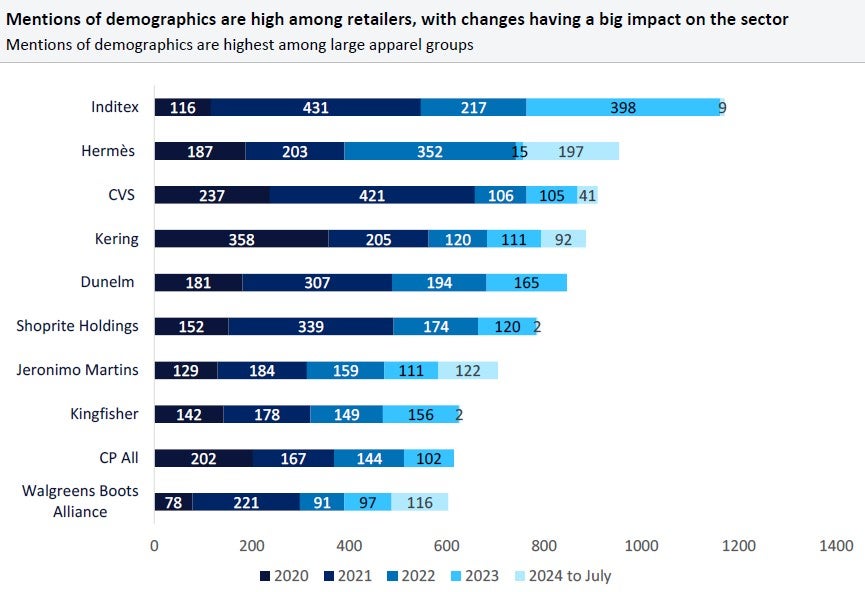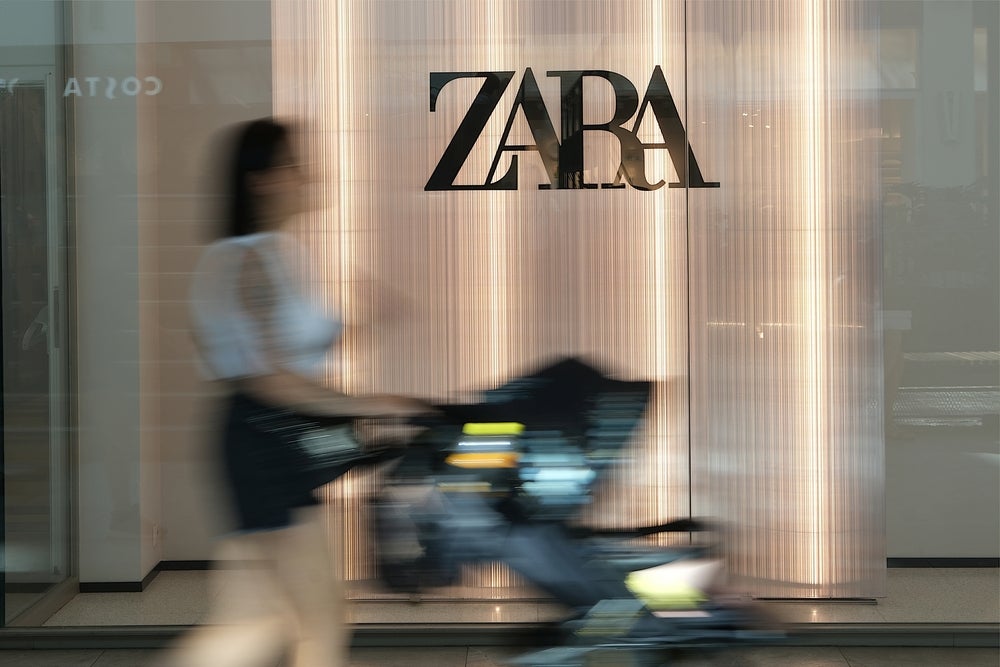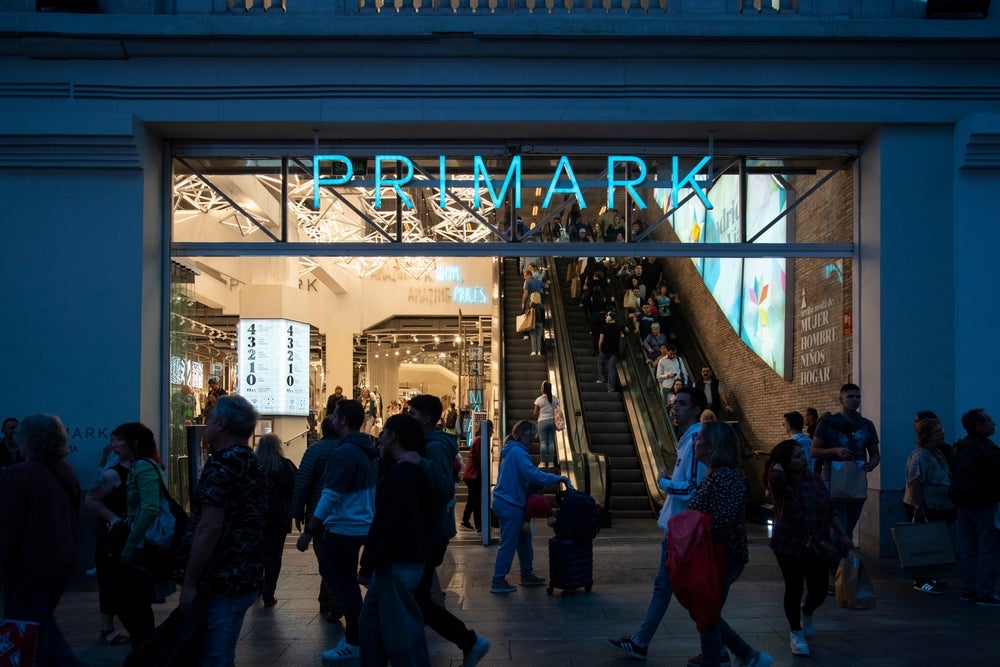The ‘Demographics in Retail and Apparel’ report found demographics is a growing theme for retailers and fashion retailers in particular, including Zara-owner Inditex.
Demographic shifts will have a significant impact on apparel retailers as the distribution of the population changes across the world and the generations with the most spending power shifts.
Different generational groups will have different needs and demands in terms the types of clothing they want and are able to purchase. Different demographics also have different preferences in how and where they want to buy them, and the marketing used to promote them.
In the coming years as the Baby Boomer generation will start to retire and consumers in the Millennial and Gen Z age groups are set to become increasingly prominent.
This will have implications for fashion retailers’ propositions in the coming years, including their investment in online and offline channels, store formats, store locations and the social media platforms they use.
Zara-owner Inditex mentioned ‘demographics’ 398 times in 2023, as demographic trends affect its collections and buying patterns.

Other key retail companies which emphasise demographics in their filings are luxury groups including Hermès and Kering, which ranked second and fourth in total, will be affected by demographic change as the developing world grows in affluence, making its populations more amenable to a luxury retail offering.
Zara is expected to benefit from both the Gen Z and Millennial eras, alongside Japanese retailer Uniqlo.
While Inditex’s Zara has broad appeal across several demographics, the retail group will still be impacted by changing demographics including changes in their workforce and supply chain.
In June, Inditex reported continued revenue growth in first quarter of 2024, as an analyst said the business is on track to deliver a “robust performance” in the first half of 2024/2025.
Inditex’s Zara brand announced it would launch a weekly live-streaming service in the US, Europe and UK this year after reporting a 50% sales increase in China in the first quarter of 2024.















